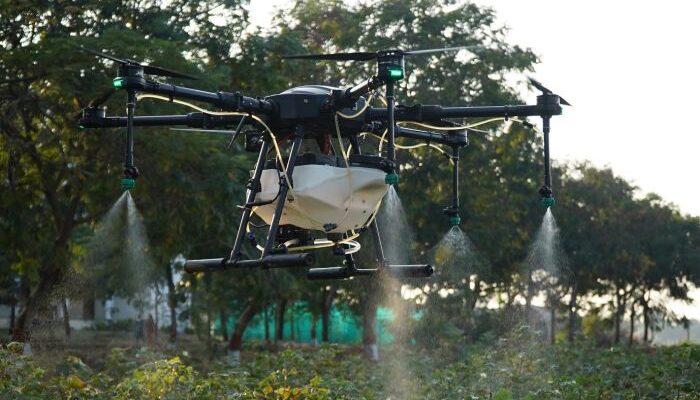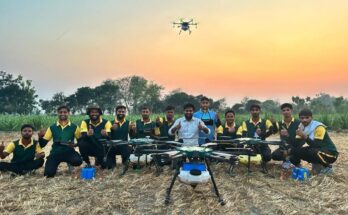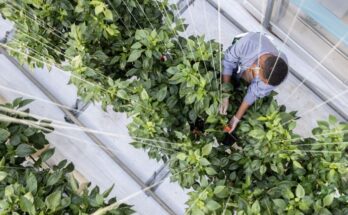Artificial Intelligence (AI) has the potential to revolutionise agriculture in India by enabling farmers to make better decisions, improving crop yields, and increasing efficiency in farming practices.
Here are eight ways in which AI can transform agriculture in India
1. Precision farming
AI-based tools can help farmers make precise decisions related to irrigation, fertigation, and crop protection, which can lead to better yields and reduce waste. Farmers can use AI-powered sensors and drones to monitor crop health, detect diseases, and predict yield.
2. Crop management
AI can help farmers manage crops more efficiently by analysing data from sensors and satellites, predicting weather patterns, and providing real-time information on soil moisture, temperature, and nutrient levels. This can help farmers make more informed decisions about planting, fertilising, and harvesting.
3. Supply chain management
AI can help optimise the supply chain by predicting demand, managing inventory, and reducing waste. By analysing data on market trends, weather patterns, and transportation costs, AI can help farmers and agribusinesses make better decisions about when to harvest and how to transport their products.
4. Reducing dependency on labour
AI can help reduce the dependency on labour by automating tasks such as planting, weeding, and harvesting. This can help decrease labour costs and improve farm efficiency.
You may also like to read: PepsiCo in collaboration with Cropin, introduces ‘crop intelligence model’ for potato crops in India
5. Disease and pest detection
AI can help farmers detect and diagnose diseases and pests in their crops at an early stage. By analysing data from sensors and drones, AI can help farmers take action before the problem becomes too severe.
6. Crop monitoring and prediction
AI-powered tools and sensors can be used to monitor crop health, soil moisture, and pest infestations. Farmers can also use AI to predict crop yield and plan their harvest accordingly.
7. Weather forecasting
Accurate weather forecasting is crucial for farmers to plan their operations effectively. AI-powered weather forecasting models can provide accurate predictions, enabling farmers to make informed decisions about when to plant and harvest their crops.
8. Farm automation
Automation of farm equipment like tractors and harvesters can improve efficiency and reduce labour costs. AI-powered drones can also be used for crop monitoring and spraying.
Overall, the use of Artificial Intelligence in agriculture has the potential to significantly improve efficiency, reduce waste, and increase yields in India. However, it is important to ensure that these technologies are accessible and affordable to small-scale farmers, who make up the majority of the agricultural workforce in the country.





Great Content about AI for agriculture. Thanks for sharing